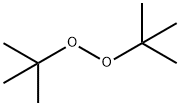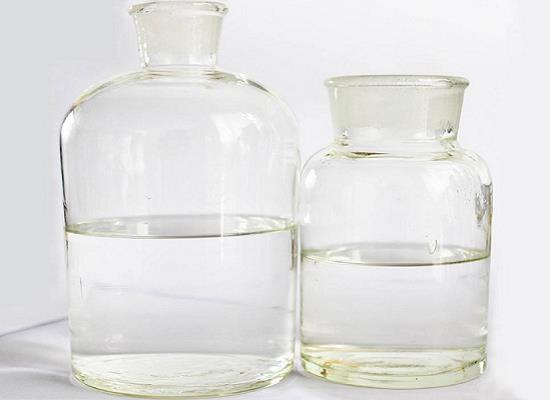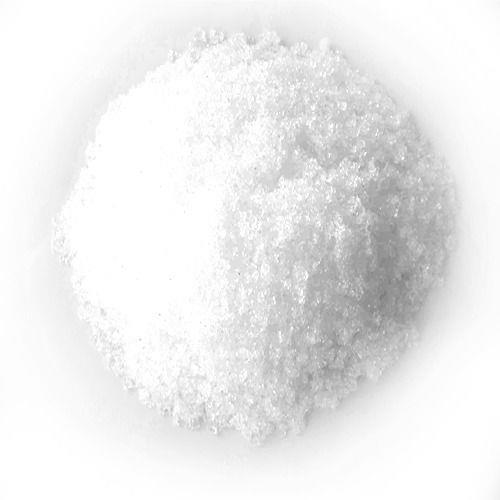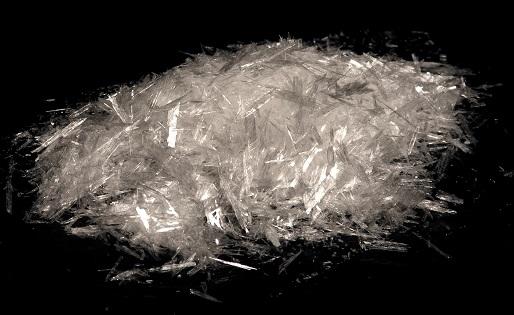What is Di-tert-butyl peroxide?
Identification
Product Name: Di-tert-butyl peroxide
Synonyms: (tert-C4H9O)2;(tributyl)peroxide;2-(tert-Butylperoxy)-2-methylpropane;Aztec di-t-butyl peroxoide;bis(1,1-dimethylethyl)-peroxid;bis(t-butyl)peroxide;Bis(tert-butyl) peroxide;bis(tert-butyl)peroxide
CAS: 110-05-4
MF: C8H18O2
MW: 146.23
EINECS: 203-733-6
Structure 
Properties
Melting point -30 °C
Boiling point 109-110 °C(lit.)
Density 0.796 g/mL at 25 °C(lit.)
Vapor pressure 40 mm Hg ( 20 °C)
Refractive index n20/D 1.3891(lit.)
Fp 34 °F
Storage temp. 2-8°C
Solubility 0.063g/l
Form Liquid
Color Clear
Water Solubility immiscible
Uses
Enox DTBP (Di-tert-butyl peroxide) is a transparant liquid which has C8H18O2 as chemical formula. This dialkyl peroxide is used as initiator for the production of Low Density Polyethylene (LDPE). Further it finds its application in the polymerization and copolymerization of styrene, olefins and acrylic resins and as modification agent of polypropylene degradation.
Di-tert-butyl peroxide is also known as DTBP, peroxide bis(1,1-dimethylethyl) and tert-Butyl peroxide. Di-tert-butyl peroxide is used for synthesis.
Safety Information according to GHS
| Hazard Pictogram(s) |   |
| Hazard Statement(s) | H225: Highly flammable liquid and vapour. H242: Heating may cause a fire. H341: Suspected of causing genetic defects. H412: Harmful to aquatic life with long lasting effects. |
| Precautionary Statement(s) | P210: Keep away from heat, hot surfaces, sparks, open flames and other ignition sources. No smoking. P273: Avoid release to the environment. P280: Wear protective gloves/ protective clothing/ eye protection/ face protection/ hearing protection. P308 + P313: IF exposed or concerned: Get medical advice/ attention. P370 + P378: In case of fire: Use dry sand, dry chemical or alcohol-resistant foam to extinguish. P403 + P235: Store in a well-ventilated place. Keep cool. |
| Signal Word | Danger |
| RTECS | ER2450000 |
| Storage class | 5.2 Organic peroxides and self-reacting hazardous materials |
| WGK | WGK 1 slightly hazardous to water |
| Disposal | 10 Organic peroxides can be detected in aqueous solutions or organic solvents using the Perex-Test® (Cat. No. 116206). Pure peroxides are diluted to min. 10% in a suitable solvent or with water and added in small portions, with temperature control, to iron(II) chloride (Cat. No. 103860) solution. Test for complete reaction with the Perex-Test® (Cat. No. 116206). Container D. Explosive substances (storage class 4.1A) should be packed separately and tightly sealed for disposal. Ensure sufficient phlegmatization by water or the stated phlegmatizing agent! |
Carcinogenicity
A single exposure (route unspecified, but probably subcutaneous (SC)) of 14.6 mg (~365 mg/kg) produced unconvincing evidence for carcinogenicity owing to the lack of controls in 50 mice observed for more than 80 weeks. Of 35 survivors, 7 (20%) had malignant blood tumors (lymphomas) and 1 had a benign lung tumor (pulmonary adenoma) (93, 7a). Owing to its poor design, this study should be judged inadequate to determine carcinogenicity.
Storage
Store in a cool and well-ventilated areaisolated from easily oxidizable materials.Protect against physical damage. Shippingcontainers are amber glass and polyethylenebottles or steel drums not exceeding 100-lbcapacity.
You may like
Related articles And Qustion
See also
Lastest Price from Di-tert-butyl peroxide manufacturers

US $80.00-3000.00/kg2025-04-17
- CAS:
- 110-05-4
- Min. Order:
- 1000kg
- Purity:
- 0.98
- Supply Ability:
- 5000 Metric Ton/Metric Tons per Year
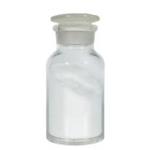
US $20.00-10.00/kg2025-03-07
- CAS:
- 110-05-4
- Min. Order:
- 1kg
- Purity:
- 0.99
- Supply Ability:
- 10 tons
